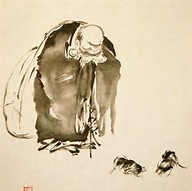我国哲学词汇英译
我国哲学词汇英译 无为 五行
无 为Non-action
“中华思维文明术语”,是浓缩了中华哲学思维、人文精神、价值观念等的以词或短语办法固化的概念和文明中心词。它们是中华民族几千年来对天然与社会进行探究和理性思索的效果,沉淀着中华民族最深重的前史才智。本文选登“中华文明术语”诠译和英文翻译,使我国人愈加了解我国古代哲学思维,也使国际愈加了解中华思维文明。
“为”的一种状况。道家以“有为”与“无为”相对。所谓“有为”,一般是指统治者把自己的毅力强加给别人或国际,不尊重或不适应万物的赋性。“无为”的含义与之相反,包括三个关键:其一,权利经过自我控制的办法遏止自己的干与愿望;其二,适应万物或大众的赋性;其三,发挥万物或许大众的自主性。“无为”并不是不作为,而是更才智的作为办法,经过无为来到达无不为的成果。
Wuwei (non-action) refers to a state of action. Daoism contrasts “action” to “nonaction.” “Action” generally means that the rulers impose their will on others or the world without showing any respect for or following the intrinsic(內在的)nature of things. “Non-action” is the opposite of “action,”and has three main points: 1) through self-control containing the desire to interfere; 2) following the nature of all things and the people; and 3) bringing into play the initiative of all things and people. “Non-action” does not mean not doing anything, but is a wiser way of doing things. Non-action leads to the result of getting everything done.
引例 Citations:
◎圣人处无为之事,行不言之教。(《老子·二章》)(圣人以无为的办法处理世事,以不言的办法教训大众。)
Sages deal with things through non-action and teach ordinary people through non-speech. (Laozi)
◎道常无为而无不为。(《老子·三十七章》)
(道总是对万物不加干与而成果万物。)
Dao always makes all things possible through noninterference with them.
(Laozi)
《色戒》小说英译
汉语成语的英译
“汉字”的译名
汉语网络盛行词的英译
我国哲学词汇英译
